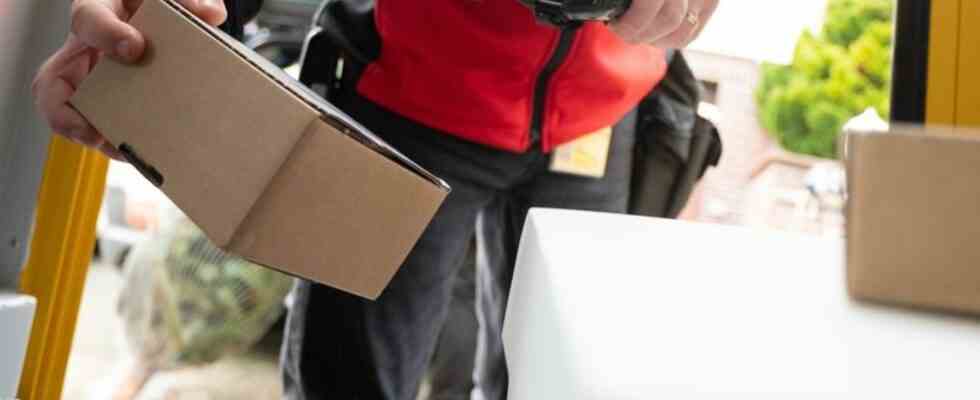retail trade
Online retail is also suffering from a slump in consumption
A DHL employee scans a package for delivery. photo
© Sebastian Gollnow/dpa
Especially when it comes to fashion, electronics and leisure items, e-commerce retailers have recently felt the effects of people’s reluctance to buy. The industry is nevertheless optimistic about the future.
People in Germany also did less online last year. Last year, sales in e-commerce fell by around 5 percent to 101.7 billion euros, as reported by the industry association bevh.
“Spontaneous purchases are currently falling, especially in fashion, hobbies and leisure as well as consumer electronics,” said the association’s deputy general manager, Martin Groß-Albenhausen. Sales of consumer goods such as food, beauty products and medicines, on the other hand, are stable.
According to bevh, gross sales of goods in e-commerce fell nominally – i.e. not adjusted for inflation – by 8.8 percent to 90.4 billion euros in 2022. At the same time, however, sales of digital services such as holiday bookings or concert ticket sales increased significantly by 39.9 percent to 11.25 billion euros after the lockdowns of the first years of the pandemic.
Compared to sales before the corona pandemic, online trade in goods was still 24.5 percent up last year. Sales of services, on the other hand, were still a good 42 percent below the 2019 level despite the increase in sales. The online share of total retail fell from 14.3 percent in 2021 to 11.8 percent in 2022. In the non-food trade, the e-commerce share fell from around 20 percent to 15.4 percent.
bevh President: “Noticeable reluctance to buy”
“Online trade is also aware of the crisis. The noticeable reluctance to buy, especially for things that are not immediately necessary, shows the current uncertainty among people combined with increased living costs,” said bevh President Gero Furchheim. The losses in online retailing of shoes were particularly strong, with a minus of 16.6 percent, and in clothing with a minus of 12.8 percent. On the other hand, there was a 6.4 percent increase in sales for pet supplies and 1.3 percent for food.
Despite the recent setback, the e-commerce industry is optimistic about the future. The selection, availability and transparency in online trading are valued by customers right now and satisfaction with online purchases is higher than ever, said Furchheim. “If the framework conditions and consumer sentiment improve, e-commerce will continue to grow at an above-average rate.” In the current year, bevh expects e-commerce with goods to grow again by 4.8 percent to 94.7 billion euros.

